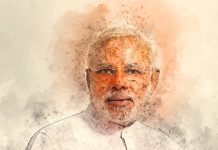What is the NRC?
The National Register of Citizens (NRC) is the list of Indian residents of Assam. It was set up in 1951, following the statistics of 1951. For an individual’s name to be included in the refreshed NRC list of 2018, the person should furnish
The existence of a name in the inheritance information is the aggregate list of the NRC information of 1951 and the discretionary moves up to midnight of 24 March 1971.
Proving linkage with the individual whose name shows up in the heritage information
What’s the issue?
An appeal has been recorded in the Supreme Court alleging that few classes of people were denied voting rights in front of the Lok Sabha surveys.
One classification included people whose names figured in the draft NRC however not in the voter list.
The subsequent classification included people whose names were erased from the voter list that showed up in the draft NRC published on July 30, 2018. The appeal asserted these individuals had cast a ballot in the last Lok Sabha political race in 2014.
The third class of individuals was those announced outsiders by the outsiders’ council just as by the Guwahati High Court; the court request was remained by the Supreme Court.
The fourth classification comprised those effectively announced outsiders by the council; this was put aside by the Supreme Court. Be that as it may, their names had been erased from the voter’s list compliant with the request for the court.
In the fifth class were those whose names had not been included in the draft NRC, however, their relatives were included; these had documented a case for the inclusion of their names.
For an individual’s name to be included in the refreshed NRC list of 2018, the person should furnish:
Existence of name in the inheritance information: The heritage information is the aggregate list of
- The Supreme Court as of late issued a notification to the middle and the Election Commission of India on a supplication seeking that the National Register of Citizens (NRC) be refreshed to include Tripura.
- The final draft of the NRC in Assam was discharged, excluding 4,000,000 occupants of the state.
- This draft of the NRC is anyway not final and individuals can in any case advance against the exclusion of their names in the NRC.
- A few strict and linguistic minority bunches are additionally opposing the NRC as discriminatory and undemocratic.
Reason: To isolate “illicit” foreigners from “genuine” inhabitants of Assam.
Nodal Agency: Registrar General and Census Commissioner India.
NRC in Assam
- The issue of its update accepted significance as Assam saw huge scope illicit movement from recent East Pakistan and, following 1971, from present-day Bangladesh.
- This prompted the six-year-long Assam development from 1979 to 1985, for deporting illicit transients.
- The All Assam Students’ Union (AASU) drove the development that requested the updating of the NRC and the expulsion of every unlawful vagrant who had entered Assam after 1951.
- The development culminated in the signing of the Assam Accord in 1985.
- It set March 25, 1971, as the cut-off date for the expelling of unlawful vagrants.
- Since the cut-off date endorsed under articles 5 and 6 of the Constitution was July 19, 1949 – to offer power to the new date, a revision was made to the Citizenship Act, 1955, and another segment was introduced.
- It was made pertinent just to Assam.
- There had been intermittent requests from AASU and other associations in Assam for updating the NRC, an Assam based NGO recorded an appeal at the Supreme Court.
- In December 2014, a division seat of the pinnacle court requested that the NRC be refreshed in a period bound way.
- The NRC of 1951 and the Electoral Roll of 1971 (up to midnight of 24 March 1971) are together called Legacy Data. People and their relatives whose names showed up in these reports are affirmed as Indian residents.
Impact
- A refreshed NRC is probably going to stop hypotheses about the genuine number of unlawful vagrants in Assam and the nation when all is said in done.
- It will give a confirmed dataset to do meaningful discussions and execute adjusted strategy measures.
- Distribution of a refreshed NRC is required to hinder future vagrants Bangladesh from entering Assam illicitly.
- The distribution of the draft NRC has just made a discernment that staying in Assam without substantial documentation will draw in confinement or prison term and expelling.
- All the more significantly, illicit transients may find it much progressively hard to obtain Indian personality records and profit of a considerable number of rights and advantages because of every Indian resident.
- Inclusion of their names in the NRC will give reprieve to every one of those Bengali speaking individuals in Assam who have been, hitherto, suspected as being Bangladeshis.
Challenges
- Defective Process – People who wound up on the main list that was discharged on January 1, 2018, didn’t find their names in the second. Indeed, even the group of a previous President of India didn’t refer to the list.
- The equal procedures of NRC, the voter’s list of the Election Commission, and the Foreigners’ Tribunals with the assistance of the Assam Border Police have prompted articulate tumult, as none of these offices are sharing information.
- Even though the draft gives a window to re-confirmation, because of countless individuals being rejected from the list, it will be hard to truly check every one of them.
- Since such ‘noncitizens’ can turn to legal alleviation to prove their citizenship guarantee, it can prompt overburdening of the legal executive which as of now reels under an enormous number of pending cases.
- There is uncertainty about the future of those forgot about from the list
- Expelling them to Bangladesh is impossible since Dhaka has never acknowledged that they are its residents or that there is an issue of illicit movement. Without a conventional understanding, India can’t persuasively push the illicit vagrants once more into Bangladesh.
- Raising this issue can also jeopardize India’s relations with Dhaka. Such an attempt would not only damage the bilateral relations but also affect the country’s image internationally.
- Apart from deportation, the other options can be: Providing large scale detention camps and this can be an unlikely option for a civilized democracy like India.
- We can also institute work permits, which would give them limited legal rights to work within the country but we should ensure that they won’t have any political voice. However, it is not clear what will be the fate of children of such migrants.
- With no end to uncertainty, the NRC process seems to be a process without an end.
Future Scope
- India, as a nation that follows the belief system of ‘VasudhaivaKutumbakam’, ought not to be rushed in making decisions that can disenfranchise her residents contradicting its hundreds of years followed values.
- The need of great importance is that Union Government ought to outline the game-plan regarding the destiny of prohibited individuals from final NRC information and ideological groups should refrain from coloring the whole NRC process through constituent possibilities that may snowball into mutual viciousness.
- There is a requirement for a hearty mechanism of legitimate help for the 4,000,000 who must demonstrate their citizenship to India with their constrained methods.










Can you tell us more about this? I’d love to find out some additional information.
Kindly visit the website for regular updates
Wow, fantastic weblog format! How long have you ever been running a blog for? You made running a blog glance easy. The total glance of your website is fantastic, let alone the content!
Thank you
You really make it seem so easy with your presentation but I find this topic to be actually something that I think I would never understand.
It seems too complex and very broad for me.
I’m looking forward for your next post, I will try to get the
hang of it!
I love when you talk about this type of stuff in your posts
Thank you
Its really well written and it helped me a lot
Thank you
I will attempt to revisit to your site and examine more posts
Sure
Some times its a pain in the ass to read what blog owners wrote but this site is real user pleasant! .
I always was interested in this topic and still am, appreciate it for posting.
Thank you
Hey there! This is my first visit to your blog! We are a collection of volunteers and starting a new project in a community in the same niche. Your blog provided us beneficial information to work on. You have done a marvellous job!